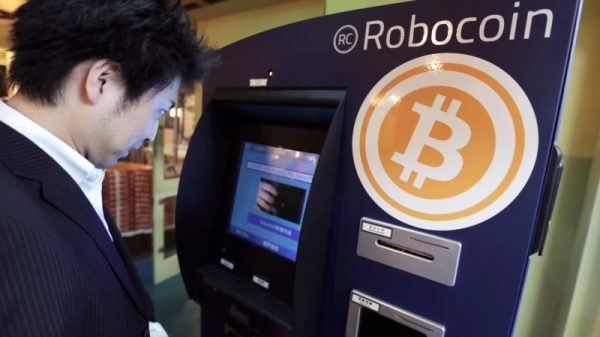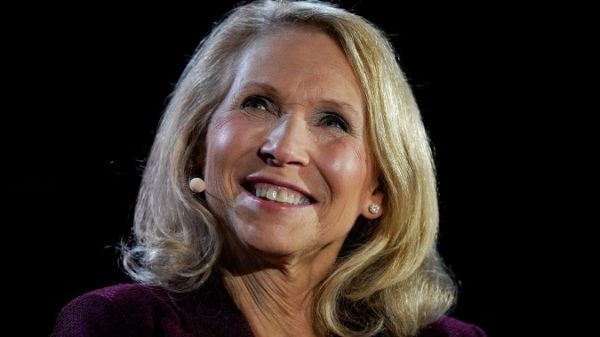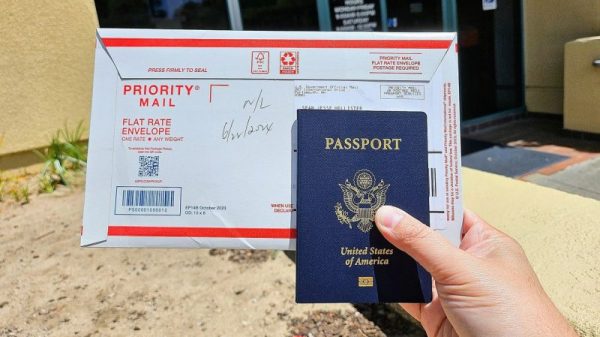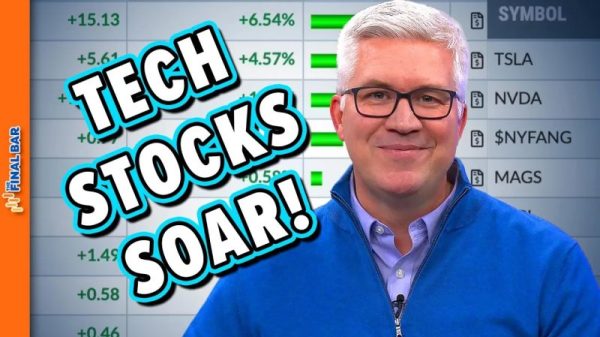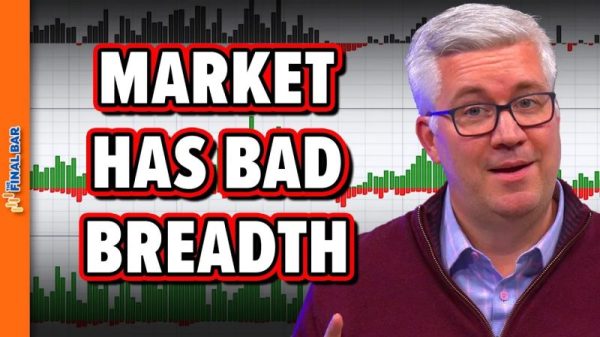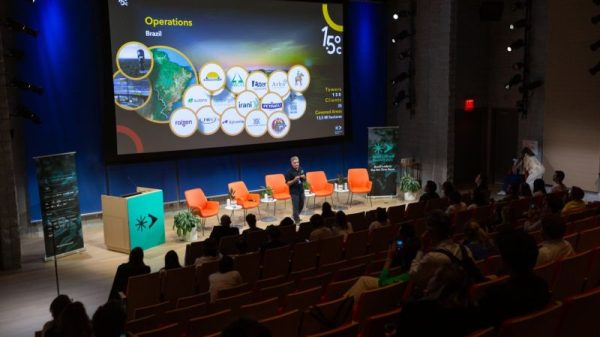Sometimes more is less.
Twenty-nine percent of Republican primary voters who watched Wednesday’s debate said that Florida Gov. Ron DeSantis won, while 26 percent said the same of businessman Vivek Ramaswamy, according to a new poll from The Washington Post, FiveThirtyEight and Ipsos. Former South Carolina governor Nikki Haley came in third, at 15 percent.
DeSantis’s political operation responded, as expected, by hyping its candidate as the “winner.” Ramaswamy’s share also suggests he will be a force in the presidential primary race ahead.
But in context, their showings are a bit less impressive. And the actual impact on the race is probably larger for Haley.
The first thing to remember is that polling on debates often reflects people’s preconceived notions about the candidates. You already like DeSantis? You’re predisposed to believe your guy won. That’s perhaps less the case in primary debates, where polarization isn’t as large a factor, but the rule still applies.
Donald Trump is the clear front-runner ahead of the primaries, but he didn’t participate in the debate. DeSantis is pulling more than one-third of the non-Trump vote in the FiveThirtyEight national polling average, Ramaswamy about one-quarter. This means that DeSantis draws a larger percentage of the non-Trump vote in the national polling average than he did among debate watchers who deemed him the victor. Ramaswamy’s numbers are about the same for both metrics.
If there’s one candidate who overperformed by this measure, it’s Haley. She’s taking only about 8 percent of the non-Trump vote in the national polling average, but nearly double that number say she won the debate.
So who are the people who say these candidates won? And did the candidates expand their appeal? Those might be the more interesting questions.
For DeSantis, the group saying he won was largely made up of people who already said they were considering him, at 87 percent. Just 10 percent of people who had not previously considered DeSantis said he won.
Ramaswamy and Haley impressed more voters for whom they hadn’t been on the radar. Ramaswamy was deemed the winner by 28 percent of those not previously considering him, while Haley took 37 percent among those who hadn’t considered her before Wednesday night.
That’s likely in part because voters were less familiar with Ramaswamy and Haley, but it suggests that those candidates might be expanding their appeal more than DeSantis is.
Ramaswamy’s showing also comes with some sizable asterisks.
While he clearly appealed to many watchers, he also polarized people. His favorable rating increased among debate watchers by 10 points (from 50 percent before to 60 percent after); his unfavorable rating increased by 19 points (from 13 percent before to 32 percent after).
As for who those voters were? Ramaswamy’s favorable and unfavorable increases were largely across the board. But there were some differences.
One of his biggest unfavorable increases came among women; while his favorable rating rose by 10 percent among them, his unfavorable rating rose by 25 points.
Ramaswamy, who has made a point to defend Trump and has offered a Trumpian vision for the country, also seemed to turn off Trump skeptics in the GOP. Among those not considering voting for Trump, his favorable rating stayed the same, but his unfavorable rating jumped by 33 points.
Haley’s numbers might be the most significant, and not just because she overperformed her standing in the polls. The data suggest the former United Nations ambassador, who tried to give her party some tough love on Wednesday night, won the battle over the Trump skeptics in the party.
Haley was the winner according to just 8 percent of those who said they were considering voting for Trump, but 33 percent of those who weren’t considering Trump. In the latter, Trump-skeptic demographic, she significantly outpaced two others with a potential claim to those voters — former New Jersey governor Chris Christie (11 percent) and former vice president Mike Pence (7 percent).
Haley’s favorable ratings increased by double digits basically across the board. But her biggest increases were with women (19 percent), those who rely more on the mainstream media than Fox News and conservative media (30 percent), nonconservatives (21 percent) and those not considering Trump (24 percent).
So in the end, Haley probably expanded her appeal the most, but she did so among a section of the party that isn’t particularly large. The challenge for her would be solidifying herself as the candidate of that wing of the party while still maintaining some appeal to the Trump contingent — which neither Christie nor Pence has managed to do.
Ramaswamy, meanwhile, apparently cost himself a broader base of appeal with his very forceful debate performance. But his path to relevance is clearly through the populist, Trumpian wing of the party, and he likely did himself some good there.
We might expect both to rise in the polls more than DeSantis. But we shouldn’t really expect the race to be significantly recast — in large part because all of these candidates are battling for the less than 50 percent of voters who aren’t already on the Trump train.
Emily Guskin contributed to this report.
Sometimes more is less.
Twenty-nine percent of Republican primary voters who watched Wednesday’s debate said that Florida Gov. Ron DeSantis won, while 26 percent said the same of businessman Vivek Ramaswamy, according to a new poll from The Washington Post, FiveThirtyEight and Ipsos. Former South Carolina governor Nikki Haley came in third, at 15 percent.
DeSantis’s political operation responded, as expected, by hyping its candidate as the “winner.” Ramaswamy’s share also suggests he will be a force in the presidential primary race ahead.
But in context, their showings are a bit less impressive. And the actual impact on the race is probably larger for Haley.
The first thing to remember is that polling on debates often reflects people’s preconceived notions about the candidates. You already like DeSantis? You’re predisposed to believe your guy won. That’s perhaps less the case in primary debates, where polarization isn’t as large a factor, but the rule still applies.
Donald Trump is the clear front-runner ahead of the primaries, but he didn’t participate in the debate. DeSantis is pulling more than one-third of the non-Trump vote in the FiveThirtyEight national polling average, Ramaswamy about one-quarter. This means that DeSantis draws a larger percentage of the non-Trump vote in the national polling average than he did among debate watchers who deemed him the victor. Ramaswamy’s numbers are about the same for both metrics.
If there’s one candidate who overperformed by this measure, it’s Haley. She’s taking only about 8 percent of the non-Trump vote in the national polling average, but nearly double that number say she won the debate.
So who are the people who say these candidates won? And did the candidates expand their appeal? Those might be the more interesting questions.
For DeSantis, the group saying he won was largely made up of people who already said they were considering him, at 87 percent. Just 10 percent of people who had not previously considered DeSantis said he won.
Ramaswamy and Haley impressed more voters for whom they hadn’t been on the radar. Ramaswamy was deemed the winner by 28 percent of those not previously considering him, while Haley took 37 percent among those who hadn’t considered her before Wednesday night.
That’s likely in part because voters were less familiar with Ramaswamy and Haley, but it suggests that those candidates might be expanding their appeal more than DeSantis is.
Ramaswamy’s showing also comes with some sizable asterisks.
While he clearly appealed to many watchers, he also polarized people. His favorable rating increased among debate watchers by 10 points (from 50 percent before to 60 percent after); his unfavorable rating increased by 19 points (from 13 percent before to 32 percent after).
As for who those voters were? Ramaswamy’s favorable and unfavorable increases were largely across the board. But there were some differences.
One of his biggest unfavorable increases came among women; while his favorable rating rose by 10 percent among them, his unfavorable rating rose by 25 points.
Ramaswamy, who has made a point to defend Trump and has offered a Trumpian vision for the country, also seemed to turn off Trump skeptics in the GOP. Among those not considering voting for Trump, his favorable rating stayed the same, but his unfavorable rating jumped by 33 points.
Haley’s numbers might be the most significant, and not just because she overperformed her standing in the polls. The data suggest the former United Nations ambassador, who tried to give her party some tough love on Wednesday night, won the battle over the Trump skeptics in the party.
Haley was the winner according to just 8 percent of those who said they were considering voting for Trump, but 33 percent of those who weren’t considering Trump. In the latter, Trump-skeptic demographic, she significantly outpaced two others with a potential claim to those voters — former New Jersey governor Chris Christie (11 percent) and former vice president Mike Pence (7 percent).
Haley’s favorable ratings increased by double digits basically across the board. But her biggest increases were with women (19 percent), those who rely more on the mainstream media than Fox News and conservative media (30 percent), nonconservatives (21 percent) and those not considering Trump (24 percent).
So in the end, Haley probably expanded her appeal the most, but she did so among a section of the party that isn’t particularly large. The challenge for her would be solidifying herself as the candidate of that wing of the party while still maintaining some appeal to the Trump contingent — which neither Christie nor Pence has managed to do.
Ramaswamy, meanwhile, apparently cost himself a broader base of appeal with his very forceful debate performance. But his path to relevance is clearly through the populist, Trumpian wing of the party, and he likely did himself some good there.
We might expect both to rise in the polls more than DeSantis. But we shouldn’t really expect the race to be significantly recast — in large part because all of these candidates are battling for the less than 50 percent of voters who aren’t already on the Trump train.
Emily Guskin contributed to this report.




